"The Ballad of Sacco and Vanzetti" - Ennio Morricone / Joan Baez
The Ballad of Sacco and Vanzetti sung by Joan Baez
Music by Ennio Morricone and Lyrics by Joan Baez
I first saw this superb film “Sacco e Vanzetti” in 1971 when it first reached the cinema screens and was stunned by it’s cinematographic ingenuity and photography, dramatically combined with an original musical soundtrack, composed and conducted by Ennio Morricone, which used unusual sounds, as well the fine and revolutionary voice of Joan Baez (well-known for her anti-Vietnam protests) and the intelligent lyrics she wrote for the main song of the film. It is an Italian docudrama and was written and directed by Giuliano Montaldo. The film presents a dramatization of the events surrounding the trial of Sacco and Vanzetti and is based on a true and infamous story involving Ferdinando Nicola Sacco (April 22, 1891) and Bartolomeo Vanzetti (June 11, 1888) two Italian-born labourers and anarchists who were tried, convicted and executed by electrocution on August 23, 1927 in Massachusetts for the 1920 armed robbery and murder of a pay-clerk and a security guard in Braintree, Massachusetts. Dario Poli.
Presented in the defence motions were evidence of perjury by prosecution witnesses, of illegal activities by the police and the federal authorities, a confession to the Braintree crimes by convicted bank robber Celestino Madeiros, and powerful evidence that identified the gang involved in the Braintree affair as the notorious Morelli Gang. All were ruled on and rejected by Judge Webster Thayer, the same judge who earlier had so severely sentenced Vanzetti. Judge Thayer would even rule on a motion accusing himself of judicial prejudice. His conduct–or misconduct–during the trials and the appeals became another of the controversial issues surrounding the case, but it, too, would prove insufficient to bring about a new trial. (Extract Robert d’ Attilio)
On April 9, 1927, after all recourse in the Massachusetts courts had failed, Sacco and Vanzetti were sentenced to death. By then the dignity and the words of the two men had turned them into powerful symbols of social justice for many throughout the world. Public agitation on their behalf by radicals, workers, immigrants, and Italians had become international in scope, and many demonstrations in the world’s great cities–Paris, London, Mexico City, Buenos Aires–protested the unfairness of their trial. (Extract from Robert d’ Attilio)
In court Nicola Sacco claimed: “I know the sentence will be between two classes, the oppressed class and the rich class, and there will be always collision between one and the other. We fraternize the people with the books, with the literature. You persecute the people, tyrannize them and kill them. We try the education of people always. You try to put a path between us and some other nationality that hates each other. That is why I am here today on this bench, for having been of the oppressed class. Well, you are the oppressor.”
The trial lasted seven weeks and on 14th July, 1921, both men were found guilty of first degree murder and sentenced to death. The journalist. Heywood Broun, reported that when Judge Thayer passed sentence upon Sacco and Vanzetti, a woman in the courtroom said with terror: “It is death condemning life!”
Bartolomeo Vanzetti commented in court after the sentence was announced: “The jury were hating us because we were against the war, and the jury don’t know that it makes any difference between a man that is against the war because he believes that the war is unjust, because he hate no country, because he is a cosmopolitan, and a man that is against the war because he is in favor of the other country that fights against the country in which he is, and therefore a spy, an enemy, and he commits any crime in the country in which he is in behalf of the other country in order to serve the other country. We are not men of that kind. Nobody can say that we are German spies or spies of any kind… I never committed a crime in my life – I have never stolen and I have never killed and I have never spilt blood, and I have fought against crime, and I have fought and I have sacrificed myself even to eliminate the crimes that the law and the church legitimate and sanctify.”
Many observers believed that their conviction resulted from prejudice against them as Italian immigrants and because they held radical political beliefs. The case resulted in anti-US demonstrations in several European countries and at one of these in Paris, a bomb exploded killing twenty people.
Today, the case continues to incite controversy based on questions regarding culpability, the question of the innocence or guilt of Sacco and Vanzetti. In 1977 Fifty years after their execution, Nicola and Bart were exonerated in a public proclamation by the Governor of Massachusetts Michael Dukakis He did so after an inquiry by a panel of legal experts convened by him determined that the two activists had not received a fair trial or anything resembling due process and that the evidence pointed to their innocence.
Lyrics By Joan Baez
Father, yes, I am a prisoner
Fear not to relay my crime
The crime is loving the forsaken
Only silence is shame
And now I’ll tell you what’s against us
An art that’s lived for centuries
Go through the years and you will find
What’s blackened all of history
Against us is the law
With its immensity of strength and power
Against us is the law!
Police know how to make a man
A guilty or an innocent
Against us is the power of police!
The shameless lies that men have told
Will ever more be paid in gold
Against us is the power of the gold!
Against us is racial hatred
And the simple fact that we are poor
My father dear, I am a prisoner
Don’t be ashamed to tell my crime
The crime of love and brotherhood
And only silence is shame
With me I have my love, my innocence,
The workers, and the poor
For all of this I’m safe and strong
And hope is mine
Rebellion, revolution don’t need dollars
They need this instead
Imagination, suffering, light and love
And care for every human being
You never steal, you never kill
You are a part of hope and life
The revolution goes from man to man
And heart to heart
And I sense when I look at the stars
That we are children of life
Death is small
Disclaimer: The views, opinions and positions expressed within this guest article are those of the author Dario Poli alone and do not represent those of the Marbella Marbella website. The accuracy, completeness and validity of any statements made within this article are not guaranteed. We accept no liability for any errors, omissions or representations. The copyright of this content belongs to Dario Poli and any liability with regards to infringement of intellectual property rights remains with the author.

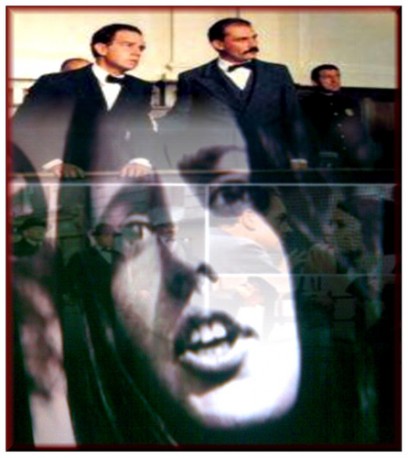



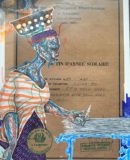





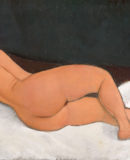

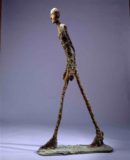

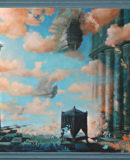
The opinions expressed by individual commentators and contributors do not necessarily constitute this website's position on the particular topic.